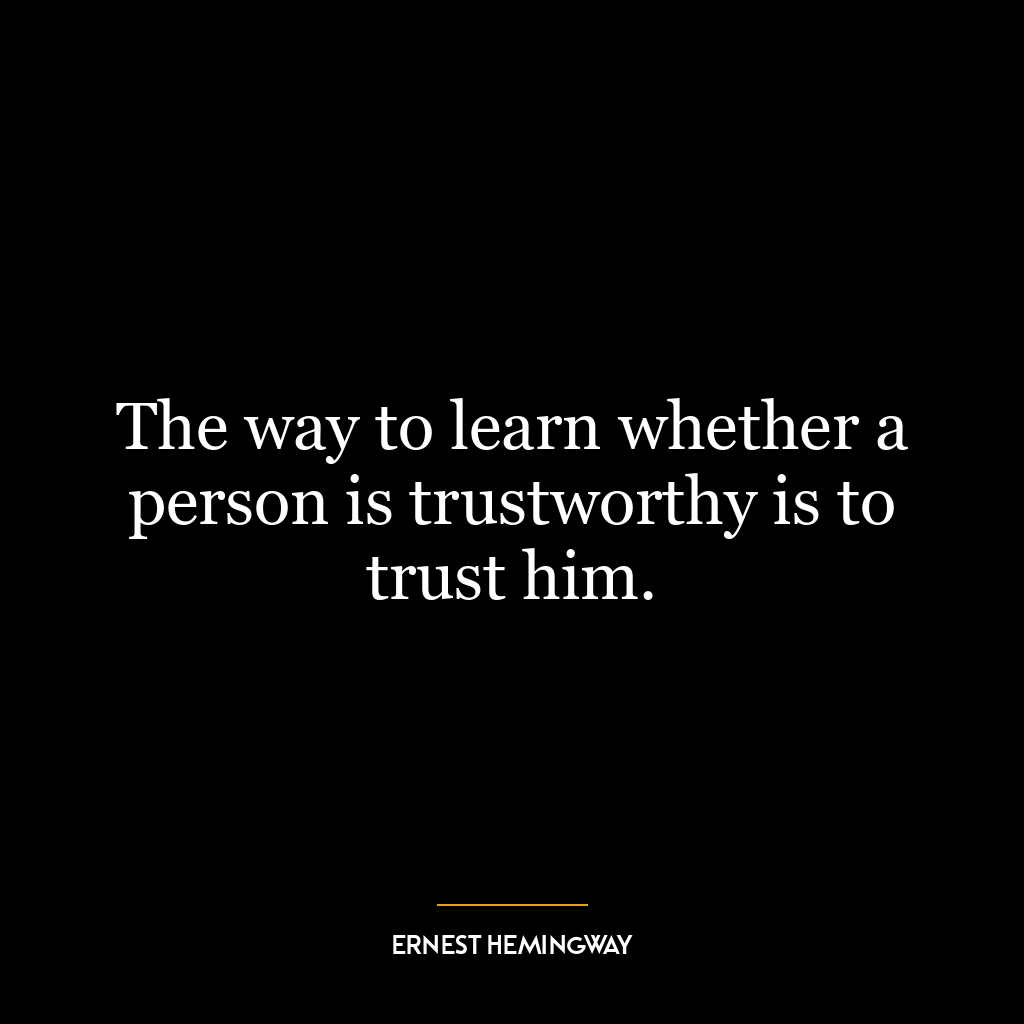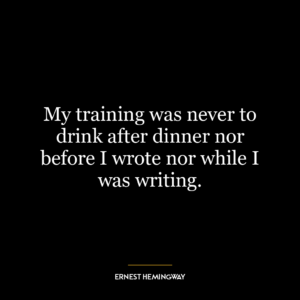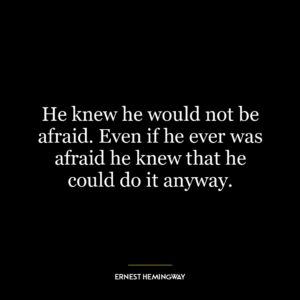The quote, “The way to learn whether a person is trustworthy is to trust him,” suggests that the only way to truly measure someone’s trustworthiness is to place your trust in them. It implies that trust is not something that can be determined through analysis, speculation, or observation, but through direct experience.
This idea can be likened to the concept of ‘innocent until proven guilty.’ In other words, one should give the benefit of the doubt and trust someone until they give a reason not to be trusted. It’s a risk, but it’s the only way to truly understand someone’s character.
In the context of personal development, this quote can be seen as a call to be open and trusting. It encourages us to take risks in our relationships, to be vulnerable, and to extend our trust to others. By doing so, we not only learn about others’ trustworthiness but also about our own ability to trust and our resilience when that trust is broken.
In today’s world, where online interactions often replace face-to-face ones, this quote is particularly relevant. With the rise of social media and online communities, it’s becoming increasingly difficult to gauge a person’s trustworthiness. We often have to trust people based on their digital personas, which can easily be manipulated or misrepresented. Thus, Hemingway’s idea of trusting to understand trustworthiness is a significant concept to grapple with in the digital age.
However, it’s important to note that while this quote encourages us to trust, it doesn’t mean we should do so blindly. We should still exercise discernment and caution and understand that everyone has the capacity to betray trust. Trust, in this context, is not about naivety but about courage and resilience.
In conclusion, the idea of trusting to understand trustworthiness is a complex yet important concept in our personal and social interactions. It challenges us to be brave, open, and resilient, to trust others, and to learn from the outcomes, whether they are positive or negative.















